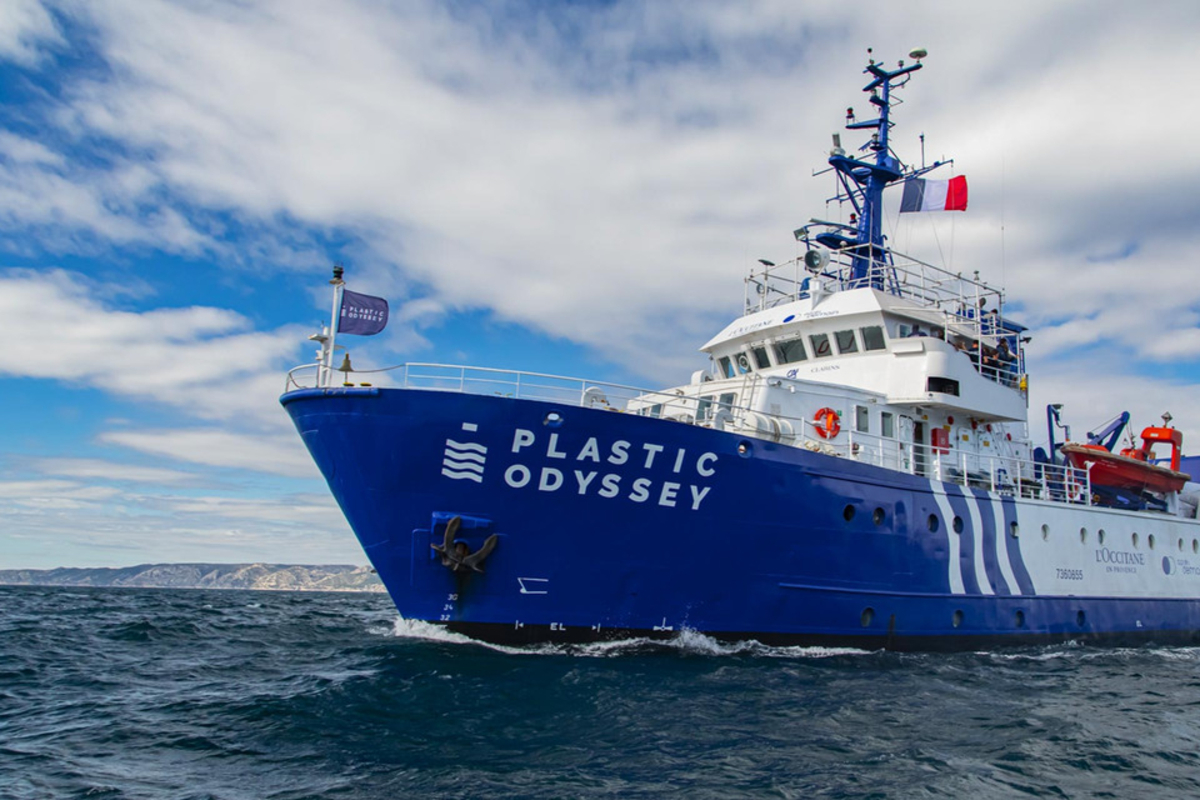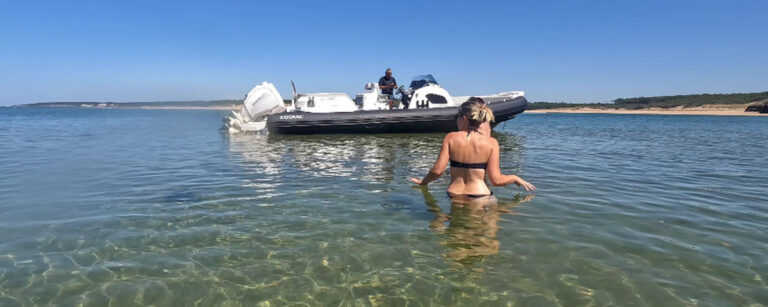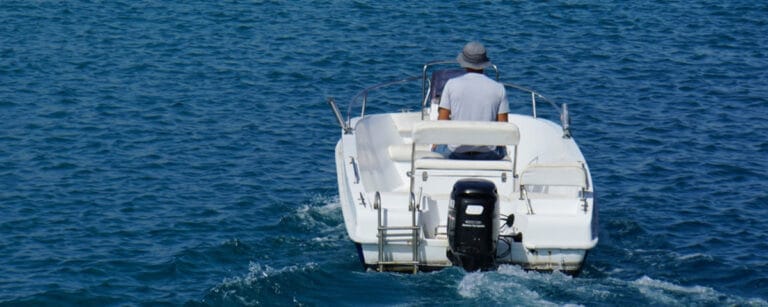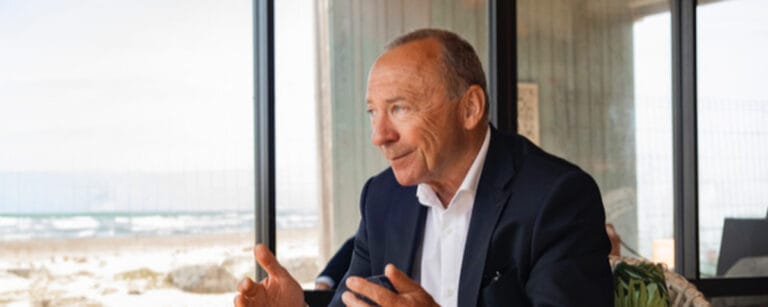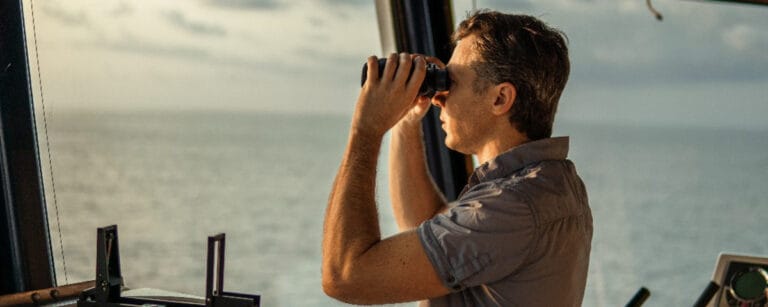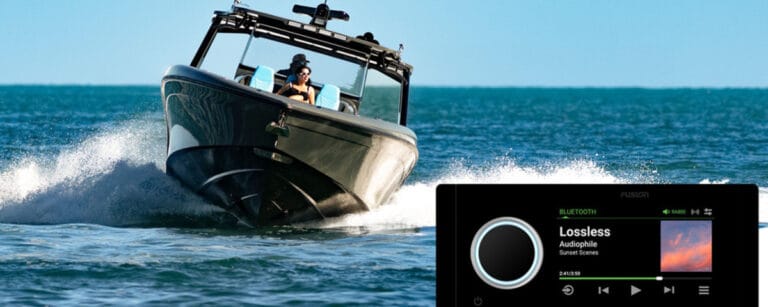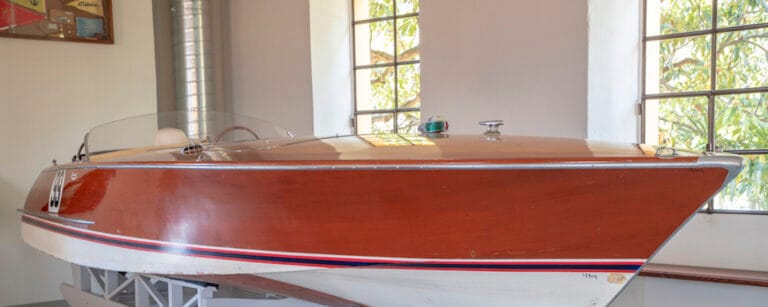Plastic Odyssey, a boat against plastics
French Sailor’s Mission: Battling Plastic Waste Around the World
For Simon Bernard, a young French sailor, the war against plastic waste began in 2016. From the deck of his ship, he was shocked to discover mountains of waste accumulated in Hann Bay, a white sand beach that had become an open sewer for Dakar, the capital of Senegal. Waste was “pretty much everywhere” on the coast, “flowing into the sea with the tides and waves,” recalls Bernard, 34, during a brief visit to Paris.
For the young sailor at the time, the shock was profound. “At sea, you don’t see the plastic,” he says.
Disturbed to see fishermen hauling up “a lot of plastic in their nets,” the aspiring sailor, fresh out of merchant marine academy, founded “Plastic Odyssey” with another engineer, Alexandre Déchelotte: a maritime expedition around the globe aboard a 40-meter laboratory ship, with multiple stops in partnership with local associations to raise awareness among the population, especially children, about the 20 tons of plastic waste that pour into the oceans every minute.
Thirty Three-Week Stopovers
He sought sponsors to finance the expedition, starting with a major French cosmetics brand that uses plastic in its packaging and communicates about this association as part of its commitment to increase the share of recycled plastic.
His initiative has only a tiny impact in the global fight against plastic pollution, but like countless others, it aims to show on its own scale that a future with less plastic is imperative. Simon Bernard is under no illusions: “The real solution to combat plastic pollution is to avoid using it.” Or even to reduce production at the source, as NGOs and several governments advocate during the UN international negotiations on the reduction of plastic pollution, which opened in Geneva on Tuesday.
The operation now includes 35 employees. Renouncing piloting ferries on the Normandy coast, the young sailor left France on October 1, 2022. He is now in Mayotte, almost at the end of his 30 three-week stopovers on three continents, in coastal regions polluted by plastic.
“Transforming Garbage into Food”
Mediterranean Sea, Atlantic, Indian, or Pacific Ocean: from Marseille to Marseille via Beirut in Lebanon, Dakar in Senegal, Recife in Brazil in 2023, Madras (Chennai) in India last March, with each time meetings with local associations, start-ups or companies working to collect, sort or recycle plastic. After two and a half years of meetings, Simon Bernard, who has given up his apartment on land and lives on the boat, says he was especially struck by the “inventiveness” of the people he meets, especially those who have lost everything “in a devastated context, in an extreme crisis.” Like “this entrepreneur in Lebanon who managed to transform garbage into food,” Georges Bitar, who collects recyclable household waste door-to-door from 60,000 people in a country that no longer has a public collection system.
The Plastic Odyssey has collected “a good hundred” local solutions to do without plastic, derived from oil. Starting with a system “that works very well on board the boat” allowing to make water drinkable and therefore to do without plastic bottles. “This has saved us 25,000 bottles of water in two years, almost a ton of plastic avoided,” calculates the sailor.
Enjoyed this post by Thibault Helle? Subscribe for more insights and updates straight from the source.

